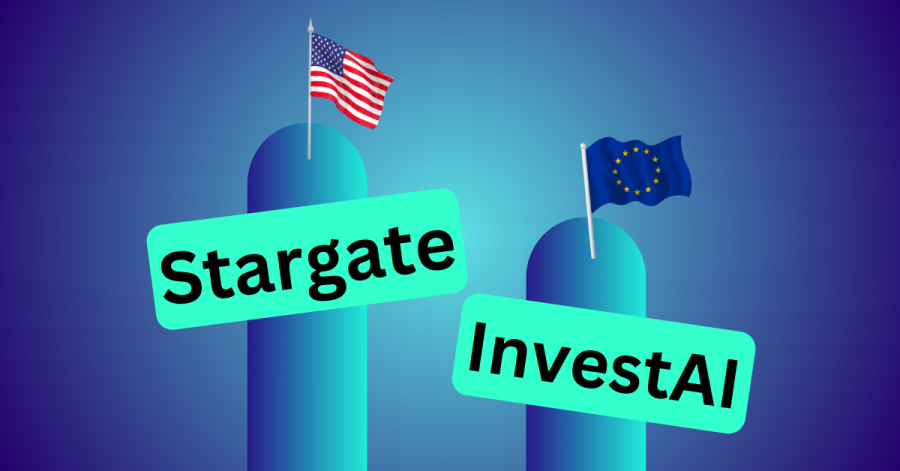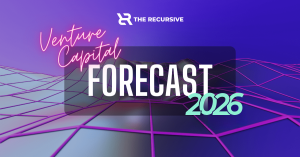On November 2023, at Buckinghamshire, UK, international governments, leading AI companies, civil society groups, and research experts gathered to consider the risks of AI. It was the first major global event to address AI in this manner; it was called the AI Safety Summit.
Today, more than a year after the event, our news feeds are overloaded with the AI Action Summit. Hosted by France, this event tackled five main themes: public interest AI, the Future of work, Innovation and Culture, Trust in AI, and Global AI Governance. You might say, “Hey, they still seem very human-centric, safety-oriented…” but the underlying mission of the event was to explore the best use of AI technology in everyday life.
When it comes to AI use and its possibilities, we have come a long way in a year. GPT -3’s number of parameters preceded GPT-2, released the same year, by 175 times, and it was only the start of the show.
Many were scared of this fast development, not sure whether its implications on everyday life would be positive or negative. They wanted to put a stop to it, make safety nets, and for a good cause. This resulted in the first comprehensive regulation on AI by a major regulator anywhere—the EU AI Act.
Some rejoiced that the old continent is not loosing its grip on putting citizens’ best interests before the pursuit of technological advancement. But then and again, many European entrepreneurs pointed out that putting guardrails on development won’t benefit society either. This sentiment especially grew as they looked at how the U.S. and China are taking the lead in the AI game.
This time, instead of a safety focus, Europe needs action.
Start of an AI Champions League
Less than a month ago, U.S. President Donald Trump announced a private sector investment of up to $500 billion to fund AI infrastructure. Namely, OpenAI, SoftBank, and Oracle will form a joint venture called Stargate. The venture will be focused on building data centers and creating more than 100,000 jobs in the United States. The first of the project’s data centers is already under construction in Texas, and presumably, twenty more will be built.
News about a venture of this worth hit like a wave, after we just recently experienced the ones about Trump’s executive order to withdraw the U.S. from the Paris climate accord and establish a new U.S. DOGE Service.
This show of arms wasn’t something to lightly wave a hand at. So on the first day of the AI Action Summit, EU Commission President Ursula von der Leyen announced InvestAI, an initiative to mobilise €200 billion for investment in AI, including a new European fund of €20 billion for AI gigafactories. Dozens of major corporations, VC firms, and startups have rallied behind the plans, which will see 20 key investors deploy €150 billion invested in European AI over the next five years.
It was definitely a remarkable comeback, which many praised. However, some see the announcement of InvestAI more as a pledge than an action plan. For that matter, using the Stargate Project as an example we should look up to. Here it is important to note that the Stargate initiative was in the works before Trump took office, and its project partners confirmed they have only $100bn in funding available immediately, while the rest will come over four years.
For what it is worth, the EU AI Champions Initiative announcement after the United States’ $500 billion partnership might seem just like a pledge. On this level, it’s a game of big numbers and words—and if anything, Americans know how to sell the story. However, the EU AI Champions Initiative might try them at their own game. Looking closely at their letter and following report, it is evident that this time around, the EU won’t stand still.
Vance in France
EU in action is not a fun time for America. Not only because of its future endeavors but also because of what that action means now. Regulation and fines. JD Vance, Vice-President of the United States, clearly showed that in his speech at the AI Action Summit. Setting out the Trump administration’s America First agenda, Vance said the United States intended to remain the dominant force in AI and strongly opposed the European Union’s far tougher regulatory approach.
Vance criticised the “massive regulations” created by the EU’s Digital Services Act and Europe’s online privacy rules (GDPR), which he said meant endless legal compliance costs for smaller firms:
“We believe that excessive regulation of the AI sector could kill a transformative industry.”
These words resonated well with the European tech ecosystem, which has been asking the EU for regulatory transparency and less bureaucracy for a few years now.
So, many complimented the VP of the United States for his delivery and relatable overview of AI threats and opportunities. This former venture capitalist, author, Marine Corps veteran, and attorney couldn’t have wished for a better debut at the AI Action Summit, which showed that he is not your regular state leader.
Even though many may agree with him on the regulation part, there is a more important angle here. JD Vance came in Europe to say America’s AI is the best and won’t settle for less. He said that on a global Summit that aims to foster collaboration and mutual agreements over one of the most impactful technologies in human history.
Ultimately, the UK and the U.S. didn’t sign the Paris AI summit declaration, deepening global splits over the development of artificial intelligence. Reason behind? They’ve been opposed to language in the communiqué that talked of “inclusive and sustainable” AI.
I did it the European way
European Commission President Ursula von der Leyen also had an impactful speech at the Paris AI Summit, albeit less condescending.
“Too often I hear that Europe is late to the race where the United States or China have already gotten ahead. I disagree, because the AI race is far from being over. We’re only at the beginning…”
She highlighted that Europe has some of the world’s fastest public supercomputers, that CERN holds the largest particle accelerator in the world, and that Europe’s strength lies in its science and technology mastery.
“There’s a distinct European brand of AI. It is already driving innovation and adaptation and picking up speed.”
On what European Union aims with AI, she stated: “AI needs competition, but AI also needs collaboration, and AI needs the confidence of the people, and has to be safe.”
She well may be right, but what is worth being right if no one believes you.
Do you think there is a European way to this AI game?







